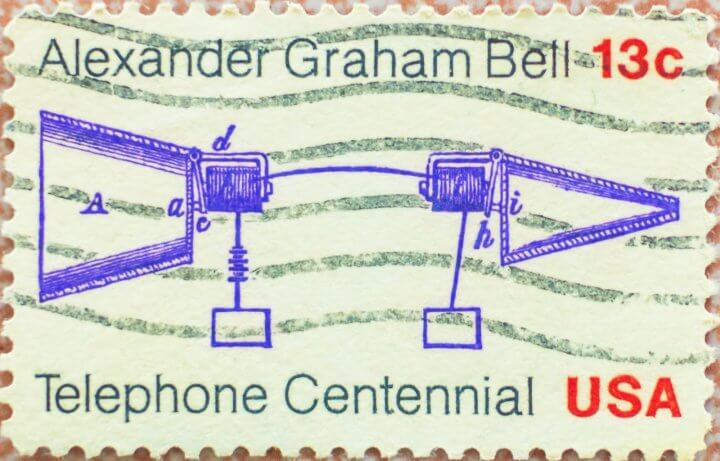
Alexander Graham Bell was born March 3, 1847 and died August 2, 1922. Today we still recognize him for his inventions and contributions to science. The following is a look at ten reasons Alexander Graham Bell is worth remembering:
- Invented the telephone –
- Research in elocution, and speech-
- Other Inventions-
- Professor at Boston University –
- Opened a school in Boston –
- Taught Helen Keller-
- Not a US citizen-
- Worldwide recognition-
- Founded Foundations and Societies still going today
- The Photophone
This is probably the most obvious reason, but Alexander Graham Bell, is recognized as the inventor of the telephone, as he was the first to register for a patent. Even though he invented the phone in 1876, he felt it an intrusion on personal lives, and did not use one in his office or lab. While some debate whether or not was truly the inventor of the telephone, historically he is given the credit.
Alexander Graham Bell, while a big contributor to our world because of his invention of the telephone also contributed greatly through his research and studies on speech and hearing. Because his mother was deaf, Alexander took a great interest in communication, acoustics, elocution, and speech and hearing. He was very involved in much research in these subjects, as were his father and uncle. Between them, several well known works on the subject of elocution were published including, The Standard Elocutionist.
Alexander Graham Bell was not a one hit wonder when it comes to inventions, while his invention of the telephone is the most famous, due to its affect on modern day life, he also invented several other things, including a wheat huller which he used on the family farm. The telephone was the widest reaching and most influential of his inventions, but his keen mind is recognized for other inventions as well.
One notable reason to remember Alexander Graham Bell was his love of education and academia, and his willingness to share his studies, and teach. Alexander was a professor of Vocal Physiology and Elocution at the School of Oratory at Boston University. Here he did much research, and taught many.
Alexander Graham Bell not only taught at Boston University, but he also opened a school in Boston called the Vocal Physiology and Mechanics of Speech. At this school he shared his findings, and those of his father and uncle teaching the principles that his father had developed.
Alexander Graham Bell was a big part of the world of speech, elocution, and communication. In addition to opening schools and teaching at them, he was a private tutor and one of his most famous students was Helen Keller.
One of the reasons Alexander Graham Bell is notable is that he contributed much to the US, and our way of life, and wasn’t a U.S. citizen until 1882. In fact, Bell lived in Canada, but was born and lived his early childhood in Scotland. After founding Bell Telephone Company, he made Washington D.C. home.
One of the reasons we still learn of Bell today is not because we still use his phone exactly, but because he was an internationally recognized inventor, and made a far greater impact than just on a few people in Boston, or Canada. In fact, he received many national awards including: a Volta
Prize from L’Académie Française for his invention of the telephone; the Légion d’honneur in France, the Albert Bedal from the Royal Society of Arts in London and an honorary PhD from the University of Wurtzburg, in Bavaria.
Besides inventions, socially and academically, Bell contributed to our way of life today, He helped found or lead several influential societies including Publication Science in 1883, leader of the National Geographic Society for a time, and regent of the Smithsonian Institute.
Alexander Graham Bell did not stop inventing after the telephone, and he successfully was able to transmit a message on a beam of light over 200 yards. It was his groundwork on which today’s laser and fiber optic communications are based.